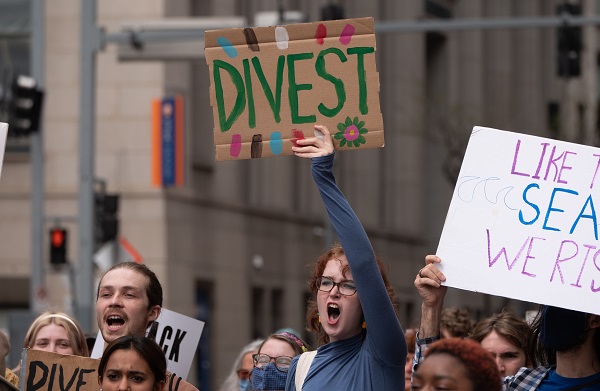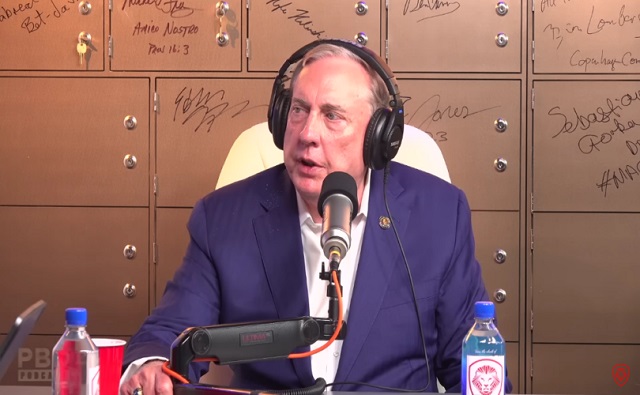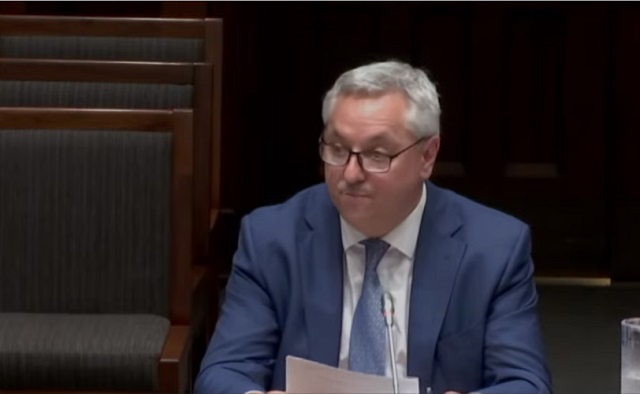Sports
Parker Thompson takes his first win in the Porsche GT3 Cup Challenge USA

Thompson Earns His First Sports Car Win in a Wet and Wild Weekend at Mid-Ohio
MID-OHIO SPORTS CAR COURSE, LEXINGTON, OHIO
In a weekend mired in rain and cool temperatures, Parker Thompson navigated treacherous conditions to win his first sports car race in Race 3 of the 2019 Porsche GT3 Cup Challenge USA at Mid-Ohio. For Race 4, the second of two races at the Acura Sport Car Challenge at Mid-Ohio, Thompson finished 2nd. That result put him on the podium four times in four races to kick off his career in sports cars.
Weather was a big factor for official practice sessions on Friday, where many cars did not even venture out on track. Thompson however, showed promising pace in the #3 JDX Racing / Hertz / Byers Porsche, eclipsing the fastest lap time of his competitors by nearly 3 seconds.
With wet conditions continuing into Saturdays qualifying session, there were high expectations for Thompson. Multiple incidents on track however, ended the session with no timed laps completed. As a result, the starting order for Race 3 was determined by driver championship points standings. Thompson would start in third position, on the inside of the second row.
In steady rain, Thompson cleanly piloted the #3 car past championship contenders Riley Dickinson and Roman DeAngelis, before pacing away from the pack. In an incident filled race, with eleven out of 22 laps driven under a yellow flag, all except for five cars would fall a lap down to Thompson. In only his third race in the car, Thompson showed a dominant victory and solidified the fact that he is a contender for the overall championship.
With clearer conditions on Sunday, Race 4 began with Thompson on pole position, and championship leader Roman DeAngelis immediately behind him on the second row. The two Canadian drivers battled hard for ten laps before DeAngelis squeezed by to take the lead position. Thompson held second for the remainder of the race. Four races into the 2019 Porsche GT3 Cup Challenge USA season, and Thompson’s sports car career, he has found the podium in each of four races.
“The results this weekend are truly exciting. With the help of Hertz and Byers Porsche, the JDX Racing crew has put together a great race car. While I was happy with my pace right from the start of the season, there is still room for improvement. This weekend was a great indicator of progress, and a sure sign that we can contend for the overall championship. I’m honoured to work with a great team of people, and so excited for what the future holds.” – Parker Thompson
Now sitting second in the Porsche GT3 Cup Challenge USA championship standings, Thompson finds himself vying for two unique racing championships. He is the current championship leader in Indy Pro 2000,where he will be competing May 10th –12th at the Grand Prix of Indianapolis. ThePorsche GT3 Cup Challenge USA season resumes June7th at the Montreal F1 Grand Prix.
Bruce Dowbiggin
Coyotes Ugly: The Sad Obsession Of Gary Bettman

It came to this. Playing in the 6,000 seat Mullet Arena on the campus of Arizona State. Owned by a luckless guy who eschewed the public spotlight. Out of the playoffs, their bags packed for who knows where, the Arizona (née Phoenix) Coyotes gave an appreciative wave to the tiny crowd gathered to say Thanks For The Memories.
With that they were history. Although NHL commissioner-for-life Gary Bettman has promised the last in a set of hapless owners that he can revive the franchise for a cool billion should he build the rink that no one was willing to build for the Yotes the past 20 years.
The Arizona Republic said good riddance. “Metro Phoenix lost the Coyotes because we are an oversaturated professional and college sports market with an endless supply of sunshine and recreational choices. Arizona may have dodged a slapshot:
We have the NFL Cardinals, the MLB Diamondbacks, the NBA Suns, MLB spring training, the WM Phoenix Open, the Phoenix Rising, the WNBA Mercury, the Indoor Football League Rattlers and the Arizona State Sun Devils. There hasn’t been a household name on the Coyotes since Shane Doan, and half of Phoenix probably doesn’t know who he was”.
Likely they’ll be a financial success in Salt Lake City where there’s a viable owner, lots of money and a will to make it work. They’ll need a will because— stop me if you’ve heard this before about the Coyotes— the rink they’ll play in this fall has only 12,500 unobstructed views for hockey.
Watching this farce we recalled getting a call from Blackberry co-founder Jim Balsillie in 2008, shortly after our book Money Players was a finalist for the Canadian Business Book of The Year. We’d written a fair bit about the Coyotes in our work and someone had told Balsillie we might be the ones to talk to about a plan he was concocting to buy the bankrupt Coyotes and eventually move them to Hamilton.

Balsillie was salty over the way he’d been used as a stalking horse in the financial troubles of the Pittsburgh Penguins in 1990s. Flush with money from the huge success of RIM, Balsillie offered to buy the Pens, with an eye to moving them to southern Ontario if Pittsburgh didn’t help build a new arena for the team.
In time, Balsillie saw that Bettman was only trying to protect the investment Mario Lemieux and others had in the Pens. Balsillie was the black hat who eventually spooked Pittsburgh into giving the current owners what they wanted. At the end of the day, Mario got his money and Balsillie was given a “thanks for trying”: parting gift of nebulous promises.
Still smarting, Balsille vowed not to be used again. in his desire to bring the NHL to southern Ontario. So when the Coyotes owner Jerry Moyes threw the keys to the team on Bettman’s desk, he saw an opening in the bankruptcy that followed. Seeing Bettman as the impediment, Balsillie decided to buy the team out of bankruptcy, a process the NHL could not legally prevent.
What Balsillie wanted to know was “What then? How would Bettman fight back?” We told him that no one flouts Bettman’s authority within the NHL. (All the current owners since 1993 have come aboard on his watch.) And that he’d have to get the Board of Governors to approve his purchase. Odds: Nil.
That’s what happened. Rather than admit that the Valley of the Sun was poisoned for hockey, Bettman found another series of undercapitalized marks to front the franchise while the league quietly propped up the operation. No longer was the Coyotes’ failure about the fans of Arizona. It was about Gary Bettman’s pride.

Protestors stand outside a press conference in Tempe featuring Arizona Coyotes executives discussing propositions related to a new arena and entertainment district. (Photo by Brooklyn Hall/ Cronkite News)
Where he had meekly let Atlanta move to Winnipeg he fought like hell to save Arizona. And his power. (His obstinacy on U.S. network TV is another story.)
Fast forward to last week and the abject failure of that process. The Arizona Republic naively fawned on Bettman for his many attempts to save the team. In fact, they were just attempts to buttress his grip on the league. While the Coyotes may have been a mess, Bettman has succeeded in preserving the investments of most of the business people who bought his NHL business prospectus.
Sometimes it meant riding into Calgary to chastise the locals for their parsimony in not giving the Flames a new rink. Ditto for Edmonton. Ditto for Winnipeg and other cities. Other times it was to shore up weak partners to protect the equity of other prosperous cities. Sometimes it was to tell Quebec City, “Not gonna’ happen.”
For his loyalty to the owners and through some luck— Gretzky to the Kings— Bettman has made the NHL work in places no one might’ve imagined. Nashville. Raleigh. Tampa. Las Vegas. Dallas. Not at the level of the NFL, NBA or MLB, but at a comfortable equity-affirming status. Nothing happens without his say-so in the NHL. Or without him getting credit. Secondary NHL execs who wanted credit for their innovations were quietly punted.
When Houston finally gets a franchise from Gary they’ll part with $1.5 billion for the honour. While the commissioner has played down new franchises and expanded playoffs, you can bet your last dollar that he’s told owners they’re in line for more expansion cash— cash they don’t have to split with players in collective bargaining.
One more certainty. As long as Bettman rules the NHL you won’t see an NHL team back in Arizona.
Bruce Dowbiggin @dowbboy is the editor of Not The Public Broadcaster A two-time winner of the Gemini Award as Canada’s top television sports broadcaster, he’s a regular contributor to Sirius XM Canada Talks Ch. 167. Inexact Science: The Six Most Compelling Draft Years In NHL History, his new book with his son Evan, was voted the seventh-best professional hockey book of all time by bookauthority.org . His 2004 book Money Players was voted sixth best on the same list, and is available via brucedowbigginbooks.ca.
Opinion
Female athletes are turning against gender-confused men dominating women’s sports

From LifeSiteNews
If female athletes came together and demanded, with one voice, that female sports be protected, they would be pushing at an open door.
What happens when obvious truths about the differences between the sexes are denied by the elites at the behest of the transgender movement? And what happens when female athletes discover that their rights mean less than the newly invented “rights” of trans-identifying men to invade their spaces?
We’ve seen the answer to that play out over the past few years. This month alone, a trans-identifying male beat his female competitors at an Oregon track meet by a full six seconds, with the video of him zipping across the finish line sparking outrage; a trans-identifying marathon runner announced that he will be competing in the full set of six marathon majors in Boston in the male, female and “non-binary” categories; and courts in West Virginia and Ohio ruled that trans-identifying males can compete on female sports teams.
In the meantime, U.K. culture secretary Lucy Frazer called for a ban on males in female sports after meeting with representatives of a number of female sports leagues, writing:
In competitive sport, biology matters. And where male strength, size and body shape gives athletes an indisputable edge, this should not be ignored. By protecting the female category, they can keep women’s competitive sport safe and fair and keep the dream alive for the young girls who dream of one day being elite sportswomen.
She concluded, “We must get back to giving women a level playing field to compete. We need to give women a sporting chance.” Refreshingly, she called on sporting bodies to take an “unambiguous position” on the matter.
That, of course, is common sense. What makes Frazer’s statements significant is that she does not, like most politicians trying to thread the needle by accepting transgender ideology but rejecting the inevitable conclusions thereof, make multiple references to “transgender women.” She instead refers to keeping male bodies out of female sports, much to the outrage of trans activists, who insist that males who identify as females are females, and thus have female bodies, because they said so.
Over the past several years, it has fallen largely to the few female sportswomen who dared to risk the opprobrium of the LGBT movement to speak for the majority and point out the unfairness of allowing males to invade their sporting domains; now, an increasing number are willing to speak out. A recent study conducted by Manchester Metropolitan and Swansea universities, published April 17 in the Journal of Sports Sciences, indicates that the majority of female athletes want women’s sports to be categorized by sex rather than “gender identity.”
Fifty-eight percent of respondents in the study of elite female athletes wanted categorization by biological sex; that rose to 77 percent among those classified as “world-class athletes” who had competed in Olympic or world championship finals. Researchers surveyed 175 “national, elite and world class female athletes – current and retired – from a range of sports and countries” and included “26 world champions, 22 Olympians and six Paralympians,” making it the largest study of its kind conducted thus far. A BBC Sports study last month found that over 100 elite U.K. female athletes “would be uncomfortable” with trans-identifying males competing in the female categories of their sports.
According to the study, there is one exception to the rule: the “majority of athletes competing in non-Olympic sports believe changing category should be allowed, with the highest rate of 74% among those in ‘precision’ sports such as archery.”
In short, the higher female athletes climb, the more likely they are to object to trans-identifying males competing in their categories. Most of these athletes, of course, remain unnamed. Imagine if they came out together and demanded, with one voice, that female sports be protected. It would constitute a cultural sea change – and I suspect the moment is right for them to do so. If they pushed, they would be pushing at an open door.
-

 Business2 days ago
Business2 days agoMaxime Bernier warns Canadians of Trudeau’s plan to implement WEF global tax regime
-

 Censorship Industrial Complex18 hours ago
Censorship Industrial Complex18 hours agoDesperate Liberals move to stop MPs from calling Trudeau ‘corrupt’
-

 International2 days ago
International2 days agoUN attacks stay-at-home motherhood as ‘gender inequality’
-

 COVID-192 days ago
COVID-192 days agoWHO Official Admits the Truth About Passports
-

 Alberta2 days ago
Alberta2 days agoProvince to stop municipalities overcharging on utility bills
-

 Energy1 day ago
Energy1 day agoAnti-LNG activists have decided that they now actually care for LNG investors after years of calling to divest
-

 Alberta1 day ago
Alberta1 day agoAlberta government should create flat 8% personal and business income tax rate in Alberta
-

 conflict22 hours ago
conflict22 hours agoCol. Douglas Macgregor: US is ‘facing disaster’ as it funds overseas wars while bankrupt














